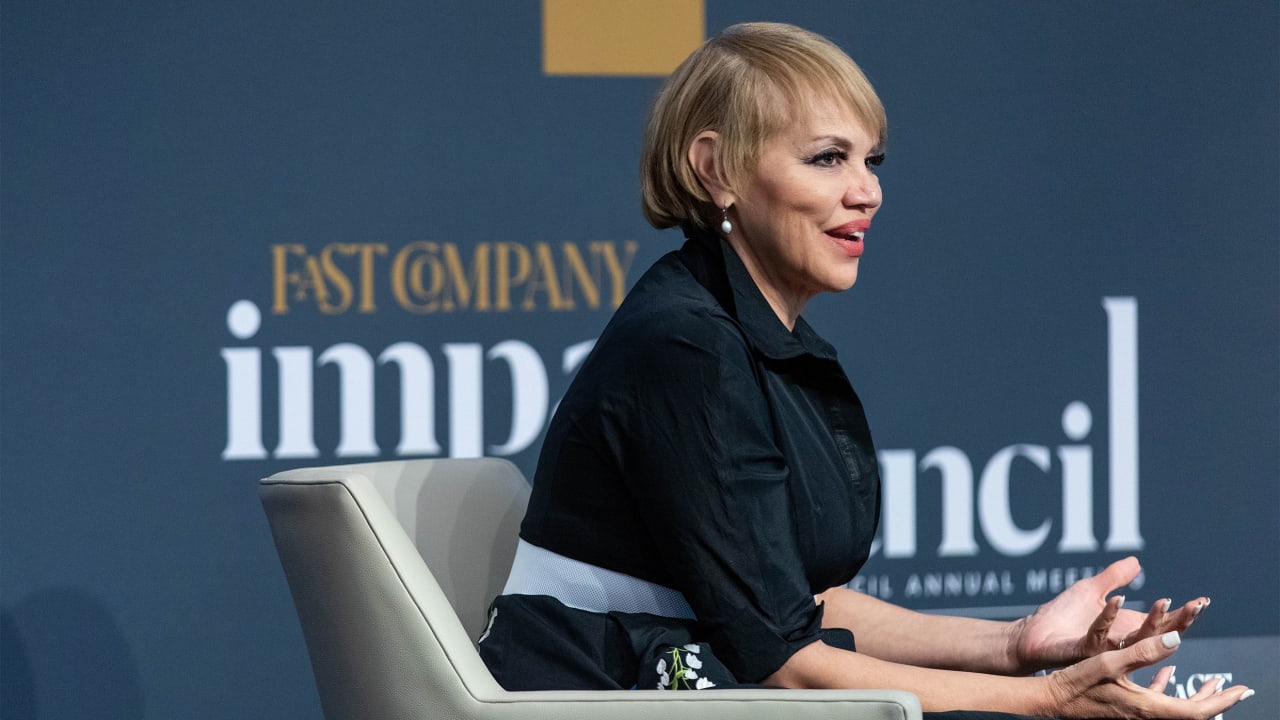[ad_1]

Earlier this year, 32 states reduced Supplemental Nutrition Assistance Program (SNAP) benefits, prompting experts to warn of a “hunger cliff.” The move came at a challenging time for recipients, with inflation at all-time highs and COVID-benefits being phased out.
According to Claire Babineaux-Fontenot, CEO of Feeding America—the nation’s largest domestic hunger-relief organization—34 million people in the United States are food insecure “to some degree.” In practical terms, that means “you can’t reasonably predict where your meals are going to come from,” Babineaux-Fontenot told an audience in New York this week during the annual meeting of the Fast Company Impact Council.
Still, she asserted that the number, staggering as it is, doesn’t paint the full picture. Many more people are actually food insecure and have to seek food from alternative methods, like engaging directly with food banks, church services, and more. Babineaux-Fontenot said that while people in the United States may disagree on many things, the fact that millions of Americans struggle with hunger is not exactly up for debate. Feeding them shouldn’t be controversial, she says.
“America is one of the most affluent countries in the world, and yet tens of millions of people right here struggle to make ends meet,” Babineaux-Fontenot said, adding that these struggles impact everyone—not just people who can’t afford groceries. “Everybody benefits when we address these issues . . . If you care about finance and financial stimuli, you should care about hunger.” That’s because a basic need like food touches everything—the workforce, education, health outcomes, the elderly, and children.
Nevertheless, people are divided on what should be done about the hunger crisis or the extent to which we should care about hungry people, Babineaux-Fontenot continued. Many argue against SNAP benefits, for example, because fraud exists in the program, to which she says, of course, it does. “Are there people in SNAP?” she quipped. “If there are people in SNAP, sure, there’s fraud.”
But she pressed that the organization actually has “one of the lowest rates of fraud of any government program.” Also, the program doesn’t provide financial support—just food, which so many people are in need of. Furthermore, it’s “supplemental,” Babineaux-Fontenot emphasizes, which means it’s merely aimed at lessening the burden. Recipients are still responsible for buying many of their own groceries.
While Feeding America has put “impact” over taking “credit” for its efforts, the group’s CEO wants people to know and trust the organization, which is far more massive than most people know. “We’re working harder to help people have an awareness of who we are . . . ” she said. Speaking about the group’s reach, she said that during the pandemic, when supply-chain disruption was impacting everything, the network “provided meals to over 60 million people.” That comes out to 6.7 billion meals.
Still, funding has plummeted since the end of the pandemic, she says, which means the organization is getting less food now, even though demand is up. Babineaux-Fontenot says that businesses can help by holding food banks or donating food, as well as donating real dollars that get poured back into the community.
Those donations don’t just go to buying food but also toward initiatives to ensure that people aren’t always dependent on the network. She believes that businesses can be a powerful ally for Feeding America, and that when they assert that benefits like SNAP matter to them, it can set a tremendous example.
[ad_2]
Source link

